0
Webinar
Community:
Mar 5, 2025
The 2024 rate of U.S. homelessness increased by 18% over the previous year, with a 39% rise in families experiencing homelessness. According to an annual survey conducted in communities across the country, more than 770,000 people were living in shelters or outside—the largest number since the report was initiated in 2007. Our panelists will provide historical context for homelessness in the United States, as well as research findings on the effectiveness of various policy and practice approaches to decreasing homelessness and supporting unhoused families and individuals.
Cindy I-Fen Cheng, Robinson Edwards Professor of American History and Asian American Studies, University of Wisconsin–Madison
Katherine Levine Einstein, Associate Professor of Political Science, Boston University
David Phillips, Research Professor of Economics, Wilson Sheehan Lab for Economic Opportunities, University of Notre Dame
Authored by: The Institute for Research on Poverty (IRP)
Topics: Homelessness, Housing
 Shared by Housing Is
Shared by Housing Is
Housing Is posted a
on Mar 31, 2025
The Institute for Research on Poverty (IRP)
The 2024 rate of U.S. homelessness increased by 18% over the previous year, with a 39% rise in families experiencing homelessness.
0
Research
Community:
Jan 29, 2025
A fact sheet from the National Partnership for Women & Families, “Paid Leave Means A Stronger Nation,” reports that most working people in the United States–73 percent, or 106 million people nationwide–do not have paid family leave through their jobs. Just 14 states have their own paid family and medical leave programs. For working people everywhere else, the lack of paid leave exacerbates other economic and care challenges to public health and our economy including the rising cost of living and a scarcity of reproductive and maternal healthcare. The report highlights that if women participated in the U.S. labor force at the same rate as in countries with national paid leave and other family policies, the economy would benefit from more than $775 billion in additional economic activity annually. View the fact sheet here.
Authored by: National Partnership for Women & Families
Topics: Data sharing, Research
 Shared by Housing Is
Shared by Housing Is
Housing Is posted a
on Jan 29, 2025
National Partnership for Women & Families
A fact sheet from the National Partnership for Women & Families, “Paid Leave Means A Stronger Nation,” reports that most working people in the United States–73 percent, or 106 million people nationwide–do not have paid family leave through their jobs.
0
Webinar
Community:
Oct 1, 2024
Authored by:
Topics: Housing Is Working Group
 Shared by Kirsten Greenwell
Shared by Kirsten Greenwell
Kirsten Greenwell posted a
on Oct 1, 2024
0
Webinar
Community:
Nov 14, 2023
This webinar includes a discussion about innovations in trauma-informed approaches to housing from expert speakers. We heard from Julianna Stuart-Lomax presenting about the POAH Trauma-Informed Housing Toolkit and their work in this area. Chad Holtzinger, president of Shopworks Architecture and partner of the Denver Housing Authority, discussed PHA trauma-informed practices at their Thrive project.
Authored by: Housing Is Working Group
Topics: Healthy homes, Housing Is Working Group, Mental health
 Shared by Camille Anoll-Hunter
Shared by Camille Anoll-Hunter
Camille Anoll-Hunter posted a
on Nov 15, 2023
This webinar includes a discussion about innovations in trauma-informed approaches to housing from expert speakers. We heard from Julianna Stuart-Lomax presenting about the POAH Trauma-Informed Housing Toolkit and their work in this area.
0
Webinar
Community:
Sep 12, 2023
Authored by: Housing Is Working Group, Johns Hopkins University researchers
Topics: Asthma, Healthy homes, Housing, Housing Is Working Group, Mental health, Mobility
 Shared by Camille Anoll-Hunter
Shared by Camille Anoll-Hunter
Camille Anoll-Hunter posted a
on Sep 13, 2023
Housing Is Working Group, Johns Hopkins University researchers
0
Webinar
Community:
Sep 12, 2023
This webinar will describe new research that shows children whose families participated in a program that helped them move from distressed neighborhoods to areas with lower rates of poverty experienced significant improvements in severe asthma episodes. Before moving, for every 100 children, there were approximately 88 severe asthma attacks per year. After moving, there were approximately 40 severe attacks per year, a reduction of more than 50%. The webinar will explore factors that help explain these changes in asthma, including the critical role of neighborhood-related stress, and describes future direction and pilot programs.
The publication can be found in the Journal of the American Medical Association here: https://jamanetwork.com/journals/jama/article-abstract/2804823
Authored by: Housing Is Working Group, Johns Hopkins University researchers
Topics: Asthma, Healthy homes, Housing, Mental health, Mobility
 Shared by Camille Anoll-Hunter
Shared by Camille Anoll-Hunter
Camille Anoll-Hunter posted a
on Sep 13, 2023
Housing Is Working Group, Johns Hopkins University researchers
This webinar will describe new research that shows children whose families participated in a program that helped them move from distressed neighborhoods to areas with lower rates of poverty experienced significant improvements in severe asthma episodes.
0
Webinar
Community:
Aug 8, 2023
Building and maintaining effective community partnerships is a critical component of health center management and community involvement. Local partners help integrate important stakeholders into organizational processes and empower health centers to better understand and care for the communities they serve. But can health centers design and evaluate their partnerships? In this webinar, we reviewed tools and procedures for designing, evaluating, and strengthening community partnerships with a focus on pragmatic, practical and innovative solutions.
Authored by: National Center of Health In Public Housing
Topics: Health, Housing, Partnerships
 Shared by Camille Anoll-Hunter
Shared by Camille Anoll-Hunter
Camille Anoll-Hunter posted a
on Aug 8, 2023
National Center of Health In Public Housing
Building and maintaining effective community partnerships is a critical component of health center management and community involvement.
0
Infographics
Community:
May 24, 2023
The unwinding of the Medicaid continuous coverage requirement represents the largest nationwide coverage transition since the Affordable Care Act, with significant health equity implications. As states restart eligibility redeterminations, millions of Medicaid enrollees will be at risk of losing their coverage with some portion exiting because they are no longer eligible, some losing coverage due to administrative challenges despite continued eligibility, and some transitioning to another source of coverage. Given the intense focus on coverage transitions during the unwinding, some states have initiated plans to publish a data dashboard to monitor progress. Data dashboards are useful for publishing dynamic data that is in high demand. They allow states to make proactive decisions about what data to release and on what schedule and then organize that data in an easy-to-digest visual format that facilitates the interpretation of key trends and patterns at a glance.
Authored by: Emily Zylla, Elizabeth Lukanen, and Lindsey Theis, SHADAC for State Health and Value Strategies
Topics: Affordable Care Act, Data sharing, Medicaid / Medicare
 Shared by Sandra Ware
Shared by Sandra Ware
Sandra Ware posted a
on May 25, 2023
Emily Zylla, Elizabeth Lukanen, and Lindsey Theis, SHADAC for State Health and Value Strategies
The unwinding of the Medicaid continuous coverage requirement represents the largest nationwide coverage transition since the Affordable Care Act, with significant health equity implications.
0
Webinar
Community:
Apr 26, 2023
Partnerships across housing, transportation, aging and disability, and health are essential to ensure housing stability. Transportation is necessary for community living. With transportation assistance, many older adults and people with disabilities can shop for groceries, get to medical appointments, stay connected and engaged, and otherwise access everyday locations and participate in their community.
Partnering to help people connect to transportation options is therefore a critical component of making community living possible.
This webinar:
Highlights effective pathways for creating cross-sector collaborations with public transportation as a key partner to improve housing stability.
Builds awareness of technical assistance resources to strengthen partnership development, including an online tool that identifies possible community transportation partners.
Answers participants’ questions about forming effective cross-sector partnerships to address housing stability through transportation access.
Authored by: Housing and Services Resource Center (HSRC)
Topics: Transportation
 Shared by Malcolm Guy
Shared by Malcolm Guy
Malcolm Guy posted a
on Apr 26, 2023
Housing and Services Resource Center (HSRC)
Partnerships across housing, transportation, aging and disability, and health are essential to ensure housing stability. Transportation is necessary for community living.
0
Webinar
Community:
Apr 13, 2023
Please join us for a time to hear from PHA leaders and industry professionals on key cross-sector topics of interest. This month will focus on strategies for working with your health department including presentations from those in the field and tips from your fellow PHAs already doing the work.
Authored by: CLPHA
Topics: Health, Housing Is Working Group, Medicaid / Medicare, Partnerships
 Shared by Sandra Ware
Shared by Sandra Ware
Sandra Ware posted a
on Apr 13, 2023
Please join us for a time to hear from PHA leaders and industry professionals on key cross-sector topics of interest. This month will focus on strategies for working with your health department including presentations from those in the field and tips from your fellow PHAs already doing the work.
0
Webinar
Community:
Apr 11, 2023
CLPHA and the U.S. Department of Energy hosted a webinar to provide PHAs with an overview of climate resiliency funds now available through the Office of State and Community Energy Programs. Dr. Henry McKoy joined the webinar and gave details on applying for various environmental resiliency funds now available.
Authored by: Malcolm Guy
Topics: Environmental Resiliency/Climate Change, Green, Sustainability
 Shared by Malcolm Guy
Shared by Malcolm Guy
Malcolm Guy posted a
on Apr 11, 2023
CLPHA and the U.S. Department of Energy hosted a webinar to provide PHAs with an overview of climate resiliency funds now available through the Office of State and Community Energy Programs. Dr.
0
Research
Community:
Jan 27, 2023
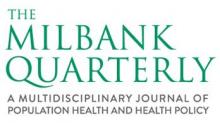
Poor maternal and child health (MCH) outcomes and rates of chronic disease are persistently high in the United States and concentrated in rural and service-deprived areas where local health departments provide most care. In a new Milbank Quarterly study, Taryn A. G. Quinlan, Amelia L. Mitchell, and Glen P. Mays of the Colorado School of Public Health use national survey data from 630 local health departments to understand the relationship between social service collaboration and the provision of direct MCH services, such as the Special Supplemental Nutrition Program for Women, Infants, and Children (WIC).
The authors found local health departments that directly offer MCH services were more likely to collaborate with community partners that provide social services. Still, more than half of these departments were considered low collaborators.
“By working together to address MCH disparities, health and social service organizations could pool resources to provide needed services and identify innovative solutions to address disparities in their communities, thereby increasing system capacity to achieve equitable health outcomes,” the authors say.
Authored by: Taryn A.G. Quinlan, Amelia L. Mitchell, Glen P. Mays for The Milbank Quarterly
Topics: dual-generation initiative, Early childhood, Health, Low-income, Partnerships, Research
 Shared by Sandra Ware
Shared by Sandra Ware
Sandra Ware posted a
on Feb 7, 2023
Taryn A.G. Quinlan, Amelia L. Mitchell, Glen P. Mays for The Milbank Quarterly
Poor maternal and child health (MCH) outcomes and rates of chronic disease are persistently high in the United States and concentrated in rural and service-deprived areas where local health departments provide most care. In a new Milbank Quarterly study, Taryn A. G. Quinlan, Amelia L.
0
Webinar
Community:
Nov 8, 2022
On October 13, 2022, HHS Secretary Xavier Becerra extended the COVID-19 Public Health Emergency, effective through January 11, 2023. While when the Public Health Emergency will end is still unknown, when it does, state Medicaid and CHIP plans will begin reassessing the eligibility of all recipients to confirm they still meet the eligibility requirements (“redetermination”).
At the Housing Is Working Group webinar on November 8, 2022, we heard from UnitedHealthcare about the important actions needed to ensure individuals retain their Medicaid enrollment and how PHA staff can support residents in this process. This presentation is plan agnostic and the goal is to ensure Americans retain their Medicaid coverage regardless of the healthcare plan that serves them. This webinar is open to all interested attendees!
Authored by: Housing Is Working Group
Topics: Health, Housing Is Working Group, Medicaid / Medicare
 Shared by Camille Anoll-Hunter
Shared by Camille Anoll-Hunter
Camille Anoll-Hunter posted a
on Nov 8, 2022
On October 13, 2022, HHS Secretary Xavier Becerra extended the COVID-19 Public Health Emergency, effective through January 11, 2023.
0
Webinar
Community:
Sep 13, 2022
View this webinar to learn more about actions public housing authorities can take to promote environmental resiliency in their communities. We first heard from Natalie Hildt Treat, senior policy advisor for Building Electrification Initiative at Northeast States for Coordinated Air Use Management (NESCAUM). Treat discussed NESCAUM’s efforts in the field of environmental resiliency, including her work helping states harness the power of clean, efficient electric building technologies to meet their climate and air quality goals. Next, we heard a case study about how the Municipal Housing Authority for the City of Yonkers (MHACY) has worked with their partner, Groundwork Hudson Valley, to incorporate environmental resiliency into their neighborhoods. Wilson Kimball, president and CEO of MHACY, and Brigitte Griswold, executive director of Groundwork Hudson Valley, shared how their partnership has leveraged data to understand the most vulnerable areas in their communities and address flooding and urban heat concerns.
Authored by: Housing Is
Topics: Energy, Environmental Resiliency/Climate Change, Green, Healthy homes, Housing Is Working Group, Sustainability
 Shared by Camille Anoll-Hunter
Shared by Camille Anoll-Hunter
Camille Anoll-Hunter posted a
on Sep 14, 2022
View this webinar to learn more about actions public housing authorities can take to promote environmental resiliency in their communities.
0
Webinar
Community:
Feb 8, 2022
The Housing Is team will be joined by staff from the Department of Education and Department of Housing and Urban Development to discuss evaluation considerations and best practices when evaluating multi-sector, community-based interventions such as the Promise and Choice Neighborhoods Initiatives. They will examine how they chose outcomes to track and how they set goals for the Promise and Choice Neighborhood Initiatives. They will also reflect on evaluation design considerations for these multifaceted programs.
Authored by: Housing Is
Topics: Data sharing, Education, Metrics
 Shared by Stephanie Gray
Shared by Stephanie Gray
Stephanie Gray posted a
on Apr 18, 2022
The Housing Is team will be joined by staff from the Department of Education and Department of Housing and Urban Development to discuss evaluation considerations and best practices when evaluating multi-sector, community-based interventions such as the Promise and Choice Neighborhoods Initiatives.
0
Webinar
Community:
Jul 30, 2021
This webinar encouraged HUD staff and stakeholders to learn how public health data sharing agreements can better inform on-the-ground vaccine efforts.
Authored by: HUD Exchange
Topics: COVID-19, Data sharing, Health
 Shared by Kirsten Greenwell
Shared by Kirsten Greenwell
Kirsten Greenwell posted a
on Jul 30, 2021
This webinar encouraged HUD staff and stakeholders to learn how public health data sharing agreements can better inform on-the-ground vaccine efforts.
0
Webinar
Community:
Feb 12, 2020
A discussion with attorney Alex Elson from the National Student Legal Defense Network and director of FAIL STATE, Alex Shebanow, to talk about predatory for-profit institutions and how that affects low income residents.
About the film:
Over five years in the making, FAIL STATE investigates the for-profit college industry and the decades-long reports of student loan abuse within the sector. The film’s central thesis: aided by a cabal of politicians, nationwide disinvestment in public colleges and universities, and an unscrupulous desire to maximize profits at all costs, for-profit colleges have exploited millions of low-income and minority students, leaving them with worthless degrees and drowning in student loan debt. With echoes of the subprime mortgage crisis, director Alexander Shebanow traces the rise of the for-profit college industry in American higher education and uncovers a story that the Los Angeles Times calls “truly eye-opening and crucial.” The film premiered to sold-out shows at DOC NYC, SXSW EDU, Cleveland International, and debuted on STARZ in December 2018. Director Alexander Shebanow and Executive Producer Dan Rather were awarded the 2019 William Randolph Hearst Award for Outstanding Professional Media Service for their work on FAIL STATE.
Authored by: CLPHA
Topics: Advocacy, CLPHA, Education, Housing Is Working Group, Legislation & Policy, Low-income, Post-secondary
 Shared by Abra Lyons-Warren
Shared by Abra Lyons-Warren
Abra Lyons-Warren posted a
on Feb 12, 2020
A discussion with attorney Alex Elson from the National Student Legal Defense Network and director of FAIL STATE, Alex Shebanow, to talk about predatory for-profit institutions and how that affects low income residents.
About the film:
Over five years in the making, FAIL STATE investigates the fo
0
Research
Community:
Mar 25, 2019
The articles below are part of a special collection commemorating 25 years of the Health Care System Research Network’s (HCSRN's) rigorous research to improve health outcomes and health systems’ performance by leveraging electronic health data. This new collection highlights, among other things, advances in personalized cancer care, the optimal use of AI in health care, and the evolution of common data models, featuring work from Kaiser Permanente, Intermountain Healthcare and others.
Authored by: The Journal for Electronic Health Data and Methods
Topics: Data sharing, Health, Partnerships, Research
 Shared by Housing Is
Shared by Housing Is
Housing Is posted a
on Jun 13, 2019
The Journal for Electronic Health Data and Methods
The articles below are part of a special collection commemorating 25 years of the Health Care System Research Network’s (HCSRN's) rigorous research to improve health outcomes and health systems’ performance by leveraging electronic health data.
0
Webinar
Community:
Jun 11, 2019
CLPHA’s Education Working Group convened on Tuesday, June 11 to learn about one of the Housing Authority of Kansas City’s (HAKC) newest housing communities: Pemberton Park, a subsidized apartment building that serves grandparents caring for grandchildren. Representatives from HAKC and their partners discussed the process of establishing the grand-family complex, as well as challenges and successes they experienced along the way.
Authored by: CLPHA, Housing Is
Topics: Education, Family engagement, Housing, Housing Is Working Group, Low-income, Partnerships, Seniors, Youth
 Shared by Housing Is
Shared by Housing Is
Housing Is posted a
on Jun 11, 2019
CLPHA’s Education Working Group convened on Tuesday, June 11 to learn about one of the Housing Authority of Kansas City’s (HAKC) newest housing communities: Pemberton Park, a subsidized apartment building that serves grandparents caring for grandchildren.
0
Research
Community:
Jun 5, 2019
A new report by Chapin Hall at the University of Chicago finds that youth homelessness has its origins in early family experiences, including family homelessness. The findings make painfully clear that housing alone is insufficient to prevent and “end” youth homelessness, and that addressing youth homelessness alone, without explicit connections and fervent attention to family homelessness, will result in continued homelessness for all populations.
Authored by: SchoolHouse Connection
Topics: Early childhood, Homelessness, Housing, Legislation & Policy
 Shared by Housing Is
Shared by Housing Is
Housing Is posted a
on Jun 5, 2019
A new report by Chapin Hall at the University of Chicago finds that youth homelessness has its origins in early family experiences, including family homelessness.
0
Research
Community:
May 30, 2019
Children experiencing homelessness or living in inadequate and unstable housing are exposed to many risks, including a heightened threat of involvement with the child welfare system. Can child welfare agencies play a role in addressing the lack of affordable housing? What if providing housing, plus other supportive services, could prevent out-of-home placements to foster care? What if, for those children already in foster care, it could help them reunify with their parents?
Authored by: Mary K. Cunningham, Mike Pergamit, and Sarah Gillespie for The Urban Institute
Topics: Child welfare, Research, Stability, Supportive housing
 Shared by Housing Is
Shared by Housing Is
Housing Is posted a
on May 30, 2019
Mary K. Cunningham, Mike Pergamit, and Sarah Gillespie for The Urban Institute
Children experiencing homelessness or living in inadequate and unstable housing are exposed to many risks, including a heightened threat of involvement with the child welfare system. Can child welfare agencies play a role in addressing the lack of affordable housing?
0
Research
Community:
Oct 14, 2017
While homeownership has been linked to positive health outcomes there is limited evidence regarding the conditions under which it may be health protective. We present a conceptual model linking homeownership to health, highlighting key potential pathways. Using the Detroit Metropolitan Area as a case study, and data from the American Community Survey (2009–2013; 5-years estimates) and Michigan Department of Community Health, we tested the following questions: (1) Is neighborhood percentage non-Hispanic Black (NHB) associated with homeownership? (2) Is neighborhood percentage NHB associated with health? (3) Is the association between percentage NHB and health mediated by homeownership? (4) Does neighborhood housing value modify associations between percentage NHB and health, or between homeownership and health?
Authored by: International Journal of Environmental Research and Public Health
Topics: Health, Housing, Research
 Shared by Housing Is
Shared by Housing Is
Housing Is posted a
on May 23, 2019
International Journal of Environmental Research and Public Health
While homeownership has been linked to positive health outcomes there is limited evidence regarding the conditions under which it may be health protective. We present a conceptual model linking homeownership to health, highlighting key potential pathways.
0
Research
Community:
Early childhood education programs can impact life outcomes in ways that span generations, according to new research from Nobel laureate James Heckman. In a pair of companion papers released this week, the pioneering University of Chicago economist found that the children of those who participated in a landmark 1960s study still saw improvements in education, health and employment. The children saw such benefits without participating in the same preschool program as their parents—suggesting that early education can contribute to lasting upward mobility and help break cycles of poverty
Authored by: Professor James Heckman and Ganesh Karapakula
Topics: Child welfare, Dual-generation, Early childhood, Family engagement, Research
 Shared by Housing Is
Shared by Housing Is
Housing Is posted a
on May 21, 2019
Professor James Heckman and Ganesh Karapakula
Early childhood education programs can impact life outcomes in ways that span generations, according to new research from Nobel laureate James Heckman.
0
Research
Community:
May 21, 2019
The Youth Risk Behavior Survey (YRBS) was first developed by the Centers for Disease Control and Prevention (CDC) in 1990 to assess the health risk behaviors of youth and adults in the United States. For the first time since the survey has been widely administered, the 2017 YRBS optional question list included two questions pertaining to homelessness. SchoolHouse Connection analyzed demographic and risk factor data from the YRBS in 17 states[1], comparing high school students experiencing homelessness and those not experiencing homelessness. This series shares the striking and heartbreaking results of that analysis, with tangible action steps schools can take to promote safety and health for students experiencing homelessness.
Authored by: SchoolHouse Connection
Topics: Education, Homelessness, Low-income, Research, Youth
 Shared by Housing Is
Shared by Housing Is
Housing Is posted a
on May 21, 2019
The Youth Risk Behavior Survey (YRBS) was first developed by the Centers for Disease Control and Prevention (CDC) in 1990 to assess the health risk behaviors of youth and adults in the United States.
0
Webinar
Community:
Mar 1, 2017
This webinar explored strategies for leveraging data to support college and career readiness and success (CCRS) goals for all students, with special emphasis on students in foster care. With access to quality data, education and child welfare agencies can work together to improve educational outcomes and promote CCRS for students in foster care. Presenters discussed a set of emerging practices that serve as examples of how states can use and link data to support CCRS. As states work to fulfill the requirements of the Every Student Succeeds Act (ESSA), this webinar also aims to provide concrete strategies to leverage the data collection and reporting requirements related to students in foster care to achieve CCRS goals.
Authored by: American Youth Policy Forum
Topics: Asset building, Foster care, Post-secondary, Workforce development, Youth
 Shared by Housing Is
Shared by Housing Is
Housing Is posted a
on May 21, 2019
American Youth Policy Forum
This webinar explored strategies for leveraging data to support college and career readiness and success (CCRS) goals for all students, with special emphasis on students in foster care.
 Shared by Housing Is
on Mar 31, 2025
Shared by Housing Is
on Mar 31, 2025
 Shared by Housing Is
on Jan 29, 2025
Shared by Housing Is
on Jan 29, 2025
 Shared by Kirsten Greenwell
on Oct 1, 2024
Shared by Kirsten Greenwell
on Oct 1, 2024
 Shared by Camille Anoll-Hunter
on Nov 15, 2023
Shared by Camille Anoll-Hunter
on Nov 15, 2023
 Shared by Camille Anoll-Hunter
on Sep 13, 2023
Shared by Camille Anoll-Hunter
on Sep 13, 2023
 Shared by Camille Anoll-Hunter
on Sep 13, 2023
Shared by Camille Anoll-Hunter
on Sep 13, 2023

 Shared by Camille Anoll-Hunter
on Aug 8, 2023
Shared by Camille Anoll-Hunter
on Aug 8, 2023
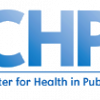

 Shared by Sandra Ware
on May 25, 2023
Shared by Sandra Ware
on May 25, 2023
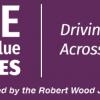
 Shared by Malcolm Guy
on Apr 26, 2023
Shared by Malcolm Guy
on Apr 26, 2023
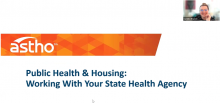
 Shared by Sandra Ware
on Apr 13, 2023
Shared by Sandra Ware
on Apr 13, 2023
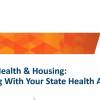
 Shared by Malcolm Guy
on Apr 11, 2023
Shared by Malcolm Guy
on Apr 11, 2023

 Shared by Sandra Ware
on Feb 7, 2023
Shared by Sandra Ware
on Feb 7, 2023
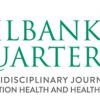
 Shared by Camille Anoll-Hunter
on Nov 8, 2022
Shared by Camille Anoll-Hunter
on Nov 8, 2022
 Shared by Camille Anoll-Hunter
on Sep 14, 2022
Shared by Camille Anoll-Hunter
on Sep 14, 2022
 Shared by Stephanie Gray
on Apr 18, 2022
Shared by Stephanie Gray
on Apr 18, 2022
 Shared by Kirsten Greenwell
on Jul 30, 2021
Shared by Kirsten Greenwell
on Jul 30, 2021
 Shared by Abra Lyons-Warren
on Feb 12, 2020
Shared by Abra Lyons-Warren
on Feb 12, 2020
 Shared by Housing Is
on Jun 13, 2019
Shared by Housing Is
on Jun 13, 2019
 Shared by Housing Is
on Jun 11, 2019
Shared by Housing Is
on Jun 11, 2019

 Shared by Housing Is
on Jun 5, 2019
Shared by Housing Is
on Jun 5, 2019

 Shared by Housing Is
on May 30, 2019
Shared by Housing Is
on May 30, 2019
 Shared by Housing Is
on May 23, 2019
Shared by Housing Is
on May 23, 2019

 Shared by Housing Is
on May 21, 2019
Shared by Housing Is
on May 21, 2019

 Shared by Housing Is
on May 21, 2019
Shared by Housing Is
on May 21, 2019
 Shared by Housing Is
on May 21, 2019
Shared by Housing Is
on May 21, 2019



